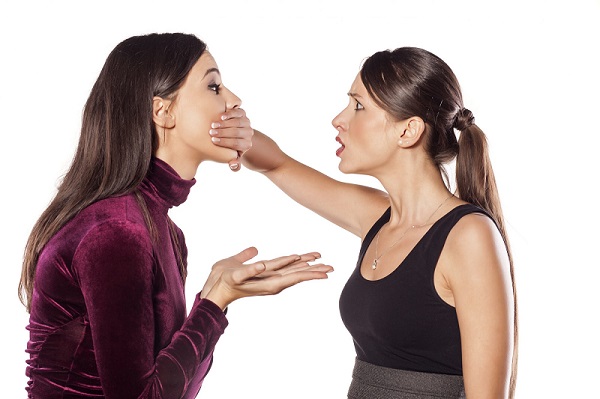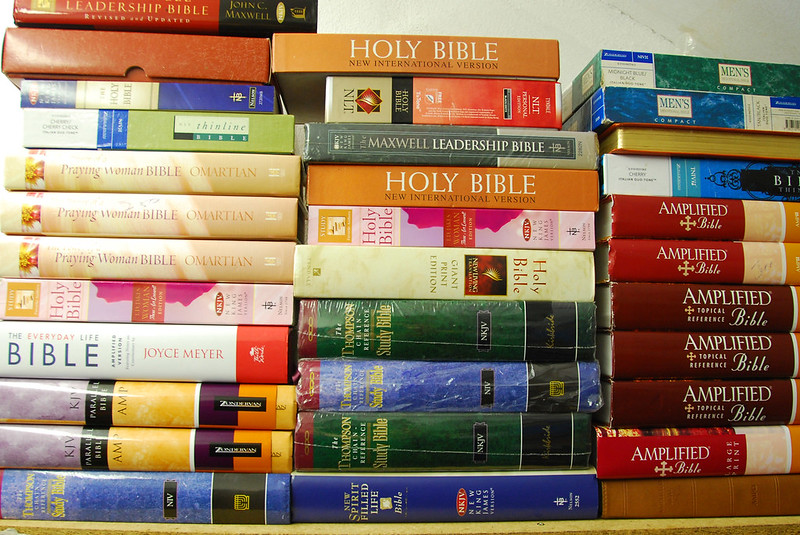Christianity Criticisms: “Christians Are Intolerant” – Part 2
In Part 1 of our discussion, I offered up a definition of
Why Has The Definition Changed?
In recent years, there has been a big push in personal identity. And, with the prevalence of social media in our lives, we all want to be known for something in one way or another; we want to be known as the biggest fan of our favorite team, or for being a creative woodworker, or for having a superior amount of knowledge of our favorite TV show. We use physical characteristics and interests to define who we are. We also make sure to toss in our sexual preference – or how we choose to dress – as well. And let’s not forget our political affiliations.
We take all of these things and attempt to assemble them into some sort of personal definition. It usually starts with “I am a…” followed by a long trail of our interests, affiliations, geographical locations, skin color, and political party. Everything in that list, we deeply care about and they make us who we are. And, because of the freedoms we have, we are able to pick and choose and change how and what we identify with as easy as we pick what to have for breakfast.
Because we have taken the things we most care about and used them to define who we are, when someone disagrees with us or criticizes one of those ideas, it feels like a personal attack. We get defensive. Any attempt at correcting our point of view feels very personal. And intolerant.
Josh McDowell put it this way in an article he wrote on tolerance:
The modern idea of tolerance is quite different, because it doesn’t make a distinction between a person’s belief and the person’s dignity. If I say that I disagree with your view on religion, morality, marriage, etc., and I try to show you why this viewpoint is flawed, I’m attacking you as a person.
Christians are not immune to this feeling of personal attack either. Especially me at times. Being a follower of Jesus is who I am. So, when I see someone post something on social media that puts Christianity in a bad light, I’m ready to come to the defense of my position and start a verbal submission match. It’s easier to do that than to see if the criticism being
The Myth Of Neutrality
As you dig deeper into the tolerance issue, you will begin to find that many people who use the modern definition of tolerance are doing so because they want to appear neutral and accepting. They see being neutral and accepting as a virtue. They think that the “tolerant” thing to do is to consider all views as equally valid. And, anyone who may think someone else’s view might be wrong is intolerant.
There is something going on here that is logically incorrect and self-defeating. Just remember this; anyone who weighs in on a subject is NOT NEUTRAL! Anyone who makes a statement does so because they think their position is right. Otherwise, they would hold a different position!
When someone says “all views are equally valid” that is not a neutral position. Because if someone else believes that some views are false then guess what? The “all views are equally valid” person thinks you’re wrong! And, according to their definition of tolerance, they are being intolerant because they don’t think your viewpoint is valid!
Confused? It’s OK. The viewpoint is confusing because it is a self-defeating one and it doesn’t live up to its own definition and standards. You cannot hold that “all views are valid” and “that not all views are true” (which is in itself a view) at the same time. Relativism and neutrality are false and self-defeating.
Why The Definition Matters
We’ve spent a lot of time talking about the differences between the classical definition of tolerance and the modern definition. And it may not seem like a big deal. But, labeling someone as intolerant has some nefarious results.
First off, when someone gets labeled as intolerant (or racist/sexist/xenophobic/homophobic/etc) it is an attempt to invalidate their viewpoint and shut them down. If we can call someone an ugly name, then that means we don’t have to listen to them. If we can make them look like a bad person, then we don’t have to address their argument as true or false.
In recent decades, the standard way of dealing with disagreement has devolved into nothing better than grade school playground tactics.
“It’s my turn to swing on the swing”
“No, you already had a turn”
“No, I didn’t!”
“Yes, you did!”
“No, I DIDN’T!”
“Oh yeah… well…. you’re mom dresses you funny!”
I’m sure you remember those scenes from your childhood. And, if you’re a parent with multiple kids you probably hear them on a daily basis. Someone makes an assertion (“it’s my turn on the swing”), someone makes a counterclaim (“you already had a turn”), this continues back and forth a couple of times. Finally, someone runs out of ways to counter or defeat the other person’s case, so all they are left with is name calling.
For Christians, when we make a statement like “Jesus is the only way to God”, we
Now, it is a far cry from “Islam is false” to “I hate Muslims”. But, that is the modern conclusion. If you think your statement is true, or something someone says or does is false or wrong, you are labeled as intolerant of other ideas. Or you are using “hate speech”
“Hate speech” is a phrase that gets tossed around quite a bit, too, as another way to shut someone down. There is no legal definition for “hate speech”. But, according to the modern definition of tolerance, simply disagreeing with someone – or not celebrating someone’s life choices – means you hate them. That’s why the definition of tolerance matters.
I hope that the bigger issue is starting to appear. Because Christians hold certain things to be true, and others to be false or wrong, Christians are seen as being against liberty. Liberty is one of the great pillars of America. So, if simply disagreeing with someone (even though you are not stopping them from doing anything) is seen an assault on their liberty to be who they want to be, the exchange of ideas and different viewpoints quickly ends. The modern definition of tolerance makes it easy to paint someone as hateful just because they disagree with you. And, if we can color them hateful, we can get them
Modern Tolerance Is Intolerance
In an attempt to be virtuous, and be all-accepting, people who hold to the modern definition of tolerance are actually practicing intolerance by getting people’s views they disagree with shut down. The truth is, the virtue of tolerance is only present if you hold to the classical view. Being tolerant of someone who holds the same views as you
How to be tolerant is best expressed by Peter Kreeft, a professor of philosophy at Boston College. He says this:
Be egalitarians regarding persons,
Be elitist towards ideas.
What Dr. Kreeft is saying is that we should hold people as having equal value. This is built into Christianity from the beginning (Genesis 1:27). God made us all in His image. We all hold equal value. Jesus reminds us of this when he says the second most important commandment is to love our neighbors as ourselves (Matthew 22:39, Mark 12:31, Luke 10:27).
The second part of this statement uses a word we have come to be uncomfortable with – “elitist”. But, all he is saying here is that some ideas are better than others. Because they are! Everyone knows this without having to be told. It’s a better idea to have someone drive you home if you have been drinking than to try and make it home on your own. It’s not true that you can jump off a building and fly away if you just believe hard enough. Some ideas are true and others are false. This is just common sense. And it’s OK to think that some ideas are better than others.
In the end, getting tolerance right is extremely important. We need to move back towards the classical definition to ensure that all people are valued equally even if the things they say and do are wrong. When we try to be neutral and accepting of all ideas, we end up
Share This Story, Choose Your Platform!
latest video
news via inbox
Nulla turp dis cursus. Integer liberos euismod pretium faucibua







